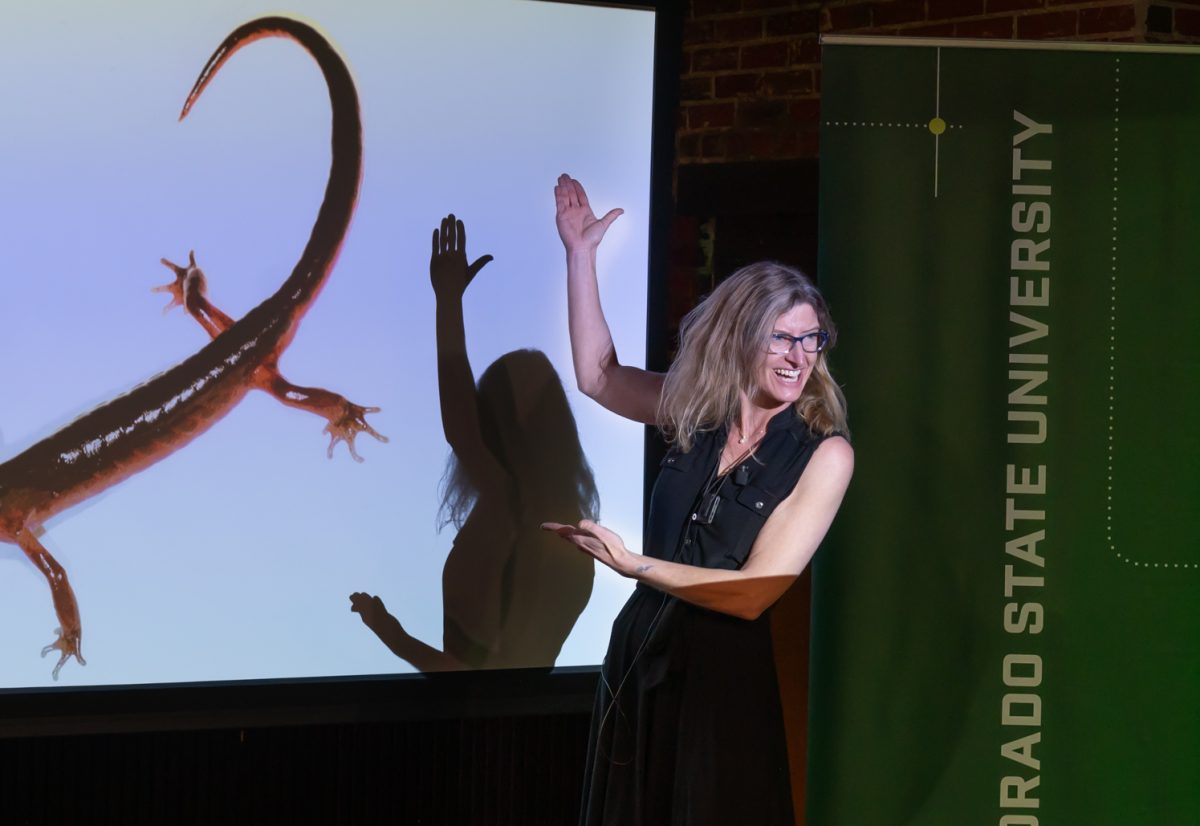Editor’s Note: All opinion section content reflects the views of the individual author only and does not represent a stance taken by The Collegian or its editorial board.
Like every other student at Colorado State University, I transitioned to an all online curriculum about three weeks ago. I had been dreading such a transition ever since I’d heard the first whispers going around campus in early March. I’m a junior majoring in English and history, fields of study that involve rigorous reading, analyzing and, ideally, discussing.
I knew that if the rest of my semester transitioned online, my education would change in fundamental and potentially counterproductive ways. Now, with four weeks left in the semester, I’m sad to say that I was right.
Concepts that are dealt with in history and English courses are not meant to be solitary pursuits. The natures of those fields are collective; they are built on community engagement. Classroom discussions ensure that complex topics are aired out and dissected in front of everyone. They are interactive and dynamic, enabling a student who struggled with what they read to gain insight from their classmates and their professor.
Deep, foundational lessons are being learned right now, lessons that will inform how humanity moves into its future.”
When these discussions are designated to a screen and reduced to two-dimensional blocks of text, that quality of insight is greatly reduced.
This online transition means that every aspect of my academic life now exists on a TV tray in my bedroom. Not having a space like the CSU campus, where the distinctions between one class and another or between one assignment and another are as clear as the separate buildings they are housed in, is creating a real sense of clustered, claustrophobic stress.
I’ve tried keeping books separated by class. I’ve tried keeping to a schedule as similar as possible to my pre-virus schedule, but the simple fact is that the consolidation of my entire education into one space is creating more problems than the ones offset by the quality of the education itself.

Some of this has to do with the nature of online courses. In-person classes allowed a mobility that was healthy and functional, and the ability to absorb information in classrooms ensured that time spent at home was not overburdened with the entirety of my education. It meant that half of my workload was taken care of in one place, and the other half could be tackled elsewhere.
Going virtual changed this. When I enrolled in these classes, I didn’t expect to be learning from my laptop, resigned to the same seat in my bedroom for days on end. But, with everything from daily lecture notes to end-of-semester projects expected to be completed from home, I find myself stuck in one spot for hours. I’m lucky if I look away from my screen long enough to remember to stretch my legs in the living room.
The hours that we would’ve spent in class are now added to the hours we would’ve spent on our laptops anyway, and that adds up to enough time to exhaust students’ brainpower.
Quite simply, the expectation that students — especially students with reading-intensive majors — should keep up with every aspect of a class, including lecture notes, secondary readings and final projects, creates a situation where we are staying in one spot doing one thing for too much time to create a meaningful sense of education.
View this post on Instagram
And it has to be said that getting up and walking around or taking a break in any way possible only helps so much. Sure, it breaks the monotony, but all of those assignments and obligations are still in the same place. None of my classes cut back on the amount of work that we’re expected to keep up with. I’ve begun to feel like walking away from my laptop only heightens the feeling that I’m not getting things done.
Students still have daily tasks like dishwashing and house cleaning to keep up with, not to mention the messy matter of grocery shopping or running other essential errands. The density of our schoolwork remained the same and so did our day-to-day tasks at home.
It’s not just our education that has seen quick, fundamental changes.”
But this online transition means that it is now concentrated in one place. That kind of clustering makes dealing with tasks more daunting than it should be.
This is a situation that builds on itself. It’s not just our education that has seen quick, fundamental changes. Simple things like grocery shopping or mailing out tax returns now have a level of uncertainty added to them to make every aspect of our lives seem disrupted. Student stress is high enough under normal conditions, and pretending that our coursework should continue according to plan only makes that problem worse.
All of this seriously needs to be considered in a wider context. The attitude that education should power on exactly as it would have totally ignores the fact that we are living through a pivotal moment in human history. Students at CSU are witnessing firsthand how fundamentally interconnected the human world has become and how dependent our species is on the mind-boggling global infrastructures of technology and energy.
Deep, foundational lessons are being learned right now, lessons that will inform how humanity moves into its future. The expectation that students still ought to devote their energy to completing assignments that would otherwise have been fulfilled in a face-to-face environment doesn’t acknowledge the fact that historic change is happening outside of our windows right now.
Cody Cooke can be reached at letters@collegian.com or on Twitter @CodyCooke17.











